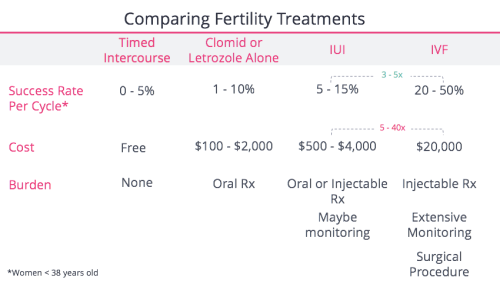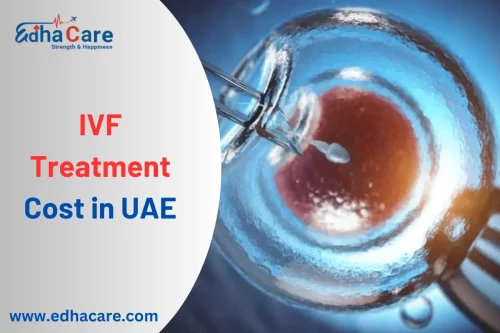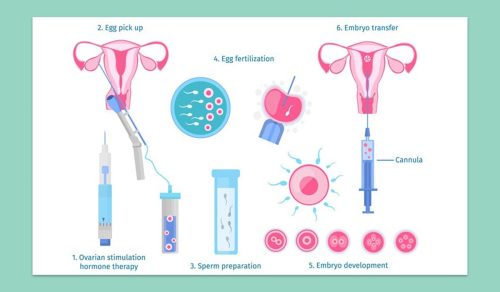
Male Erectile Dysfunction and Infertility: A Fertility Specialist’s Perspective
As a fertility specialist, I often hear from couples facing challenges in their journey to parenthood. Infertility is a sensitive topic, and for many men, it can be difficult to accept that something may be affecting their ability to conceive. One common, yet often overlooked, factor in male infertility is erectile dysfunction (ED).
When we think of ED, the first things that come to mind are usually issues related to sexual performance. However, what many people don’t realize is that erectile dysfunction can also have a significant impact on a man’s fertility. As someone who’s seen the effects of ED in many couples’ fertility struggles, I’d like to share my perspective on how this condition can contribute to infertility, and what can be done about it.
What Is Erectile Dysfunction and How Does It Relate to Infertility?
Erectile dysfunction is defined as the inability to achieve or maintain an erection sufficient for sexual intercourse. While this can certainly be distressing in its own right, it’s also a condition that can contribute to infertility, especially if left unaddressed.
Many people don’t understand that in order to conceive, a man must not only have a functioning sperm count but also the ability to engage in intercourse that results in ejaculation. If ED is preventing this from happening, even if sperm count is normal, it could still cause difficulty in achieving pregnancy.
I’ll never forget a case that left a lasting impression on me. Jason and Sophie came to see me after trying unsuccessfully for a child for over a year. While Sophie’s tests came back normal, Jason had a lower-than-average sperm count. We also learned that Jason had been struggling with ED for some time, though he hadn’t connected it to their infertility.
When we talked about it, Jason confessed that his erectile dysfunction was causing a lot of frustration and stress, which made intimacy even more difficult. “I never realized how much it could affect our ability to have a baby,” Jason told me. This scenario is more common than most people realize.
The Impact of ED on Fertility
At first glance, it might seem like ED only affects a man’s sexual health, not his fertility. However, Dr. Michael Thompson, a leading urologist in male fertility, has said, “Erectile dysfunction can complicate the conception process by making it more difficult for couples to engage in regular intercourse.”
This is where the connection becomes clearer. Even if a man’s sperm count is normal, if ED is preventing consistent, successful sexual intercourse, conception can be a challenge. The more frequent the sexual activity, the higher the chances of sperm meeting the egg. If ED is preventing that, the chances of conception are automatically reduced.
But ED’s impact isn’t always so straightforward. Sometimes, the underlying causes of ED—such as hormonal imbalances, vascular issues, or nerve damage—can also be contributing to infertility. For example, erectile dysfunction caused by low testosterone levels may also affect sperm production, further complicating the picture.
Jason’s Journey: How We Tackled the Issue Together
In Jason’s case, we decided to take a comprehensive approach. First, we addressed his erectile dysfunction. There are several treatments for ED, from oral medications like Viagra to hormone replacement therapy and even penile injections. Jason chose to start with a more conservative treatment: medication.
At the same time, we began tracking his sperm count and motility more closely. Even though he had a relatively normal sperm count, his low sperm motility raised some concerns. We discussed lifestyle changes, including reducing stress, improving diet, and engaging in regular exercise. We also recommended more frequent sexual activity to increase the chances of conception.
While treating ED was important, I also wanted to ensure that we weren’t overlooking any other potential issues that could be affecting their fertility. As Dr. Sarah Grant, a fertility expert, often says, “Treating erectile dysfunction is only part of the equation. Sometimes, we need to dig deeper to look at other aspects of male fertility.”
Over the next few months, Jason’s erectile function improved, and so did his sperm motility. With continued efforts and regular follow-up appointments, the couple was able to conceive naturally. Their joy when they found out they were expecting was a testament to how tackling both ED and fertility concerns together can have a life-changing impact.
Treatment Options for Male Erectile Dysfunction and Infertility
When it comes to treating ED in the context of infertility, there are several options available. Some men may only need lifestyle adjustments or medication, while others might require more intensive treatment. Here are some of the most common approaches:
- Oral Medications: Medications like Viagra, Cialis, and Levitra work by increasing blood flow to the penis, making it easier to achieve and maintain an erection. These medications can be very effective for many men with ED, but they don’t address the root causes.
- Hormonal Treatment: If low testosterone or other hormonal imbalances are contributing to ED, hormone replacement therapy (HRT) may be recommended. This treatment can improve both erectile function and sperm production in some men.
- Psychological Counseling: Many cases of ED have psychological causes, such as stress, anxiety, or depression. In these cases, counseling or therapy might be necessary to help manage emotional stress and improve sexual function.
- Penile Injections or Implants: For men who don’t respond to oral medications, more invasive treatments like penile injections or implants may be considered. These options are typically reserved for more severe cases of ED.
- Lifestyle Changes: Often, the first step in addressing ED is making changes to diet, exercise, and overall health. Stress management techniques, such as yoga or meditation, can also be helpful in improving erectile function and reducing anxiety around fertility.
- Assisted Reproductive Technologies (ART): In cases where ED is more severe or coupled with low sperm quality, assisted reproductive techniques like IVF or ICSI can help. These technologies can bypass many of the challenges presented by ED by directly injecting sperm into the egg.
The Importance of Addressing ED Early
What I’ve learned over the years is that addressing ED early on can make a significant difference. It’s easy for men to dismiss the issue, thinking that it’s just a temporary problem or not directly related to fertility. But the truth is, ED can play a key role in infertility, and by addressing it head-on, we can often improve the chances of conception.
“Fertility is a multifaceted issue, and erectile dysfunction is just one piece of the puzzle,” says Dr. Thomas Edwards, a reproductive specialist. “But when we treat it, we often see improvements not just in sexual function, but in overall fertility as well.”
Final Thoughts: Working Together for a Solution
If you’re dealing with infertility and suspect that ED might be a contributing factor, I encourage you to seek out professional help. Whether through oral medications, hormone treatments, or even counseling, there are many ways to improve both erectile function and fertility.
Remember, fertility issues are a journey, and it’s one that you don’t have to navigate alone. By addressing both the emotional and physical aspects of erectile dysfunction, we can help you and your partner move closer to achieving your dream of becoming parents. Together, we can make it happen.




